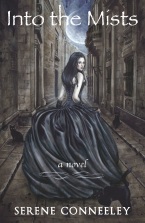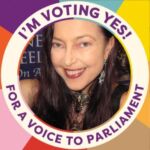I was interviewed by Canadian writer Dianna L. Gunn about NaNoWriMo recently, for the first of her Author Spotlight articles to celebrate the upcoming NaNoWriMo. She found me on the NaNoWriMo site on the list of participants who’d had some of their NaNoWriMo books published…
You can read the full interview here, as well as checking out other inspiration from successful NaNoWriMo-ers
 How much planning did you do before starting NaNoWriMo?
How much planning did you do before starting NaNoWriMo?
I planned to do a lot of planning – but it hasn’t worked out that way. The first year I’d thought that I would have all of October to spend on plotting and planning, but I didn’t end up finishing the launch and promotion and website for my previous book until October 31, so the next day I just started writing furiously and discovering what would happen as it spewed out onto the page. And the same thing happened last year, and looks set to reoccur this year. So now I’m wondering if I’m just a make-it-up-as-I-go-along type anyway – a pantser as it’s known in the NaNoWriMo universe, for flying by the seat of my pants (I relate to this blog, although in reverse).
I find the process of different writers fascinating – some plan meticulously, and I really admire that, while others don’t plan at all, which can be stressful, and it seems that I’m the latter. Which makes sense I guess, since I’m a bit impatient, but I’ve also discovered that I really love seeing where the writing takes me, watching it unfold as I go and not knowing what will happen in the end. There’s a certain alchemy to the journey that I love, so although I always say I’ll plan next time, maybe I never will. I also really love the forced nature of NaNoWriMo – I could have started book three already, and tried to find time to write it amongst my busy life, but part of me thinks it would take much longer that way, that I would procrastinate too much, and second guess myself, and get bogged down in editing as I go, and wait until inspiration hits – which is never a guaranteed event – so I think I’ll be the most productive if I just wait until November 1st and write it all then.
Of course I’ll spend months afterwards editing and revising and rewriting and the rest of it, but there’s nothing like the pressure of a November deadline to force you to bang out a first draft
What advice would you give people attempting NaNoWriMo this year?
Tell people you’re doing it, to make yourself accountable. I posted my word count on Facebook each day, and I would have been embarrassed if I’d given up – which is partly why I publicly stated that I was doing it ![]() I also had a few friends who were doing it, and that definitely encouraged me to keep going. Not that I would have quit – I’m pretty stubborn – but seeing other people’s word counts in my buddies list definitely spurred me on (I discovered a competitive streak I didn’t know I had), and I know that me posting about my progress (and the triumphs and challenges and frustrations and joys) kept other people inspired too. Plus, don’t despair if you don’t finish – no matter what happens, you’ll still have a lot more of a book written than you otherwise would have.
I also had a few friends who were doing it, and that definitely encouraged me to keep going. Not that I would have quit – I’m pretty stubborn – but seeing other people’s word counts in my buddies list definitely spurred me on (I discovered a competitive streak I didn’t know I had), and I know that me posting about my progress (and the triumphs and challenges and frustrations and joys) kept other people inspired too. Plus, don’t despair if you don’t finish – no matter what happens, you’ll still have a lot more of a book written than you otherwise would have.
Three of our group of ten got to 50,000 words (and beyond) by November 30 – which is higher than the overall average – another two passed 20,000 words, and everyone else made an awesome start, and had the beginnings of a tale for next year.
Don’t be discouraged, and don’t be afraid of the blank page. I absolutely love the process of NaNoWriMo – my first time I started with just the vaguest wisp of an idea – that a girl goes to stay with her grandma in England and finds a cottage in the mists she’s not sure really exists… That was it, and each day when I started writing, I didn’t know what was going to happen – I’d just start writing, without stopping, scrawling sentences one after the other, and words would just flow out of me, and a whole story eventually emerged.
Which leads to my most important suggestion – be fearless. I had to stop worrying about how good what I was writing was, and just write. With my non-fiction books, if I had a migraine or felt uninspired I would do some research, or edit previous chapters, or do something else related to the project that didn’t involve writing. But with the knowledge that I had to rack up 1667 words each day (and more if I’d slacked off a bit in previous days), I didn’t have that luxury – I just had to write. And that was really freeing. My inner editor was switched off, and I wrote without thinking, almost stream of consciousness, and I never looked back at what I’d written either, I just kept going forward. And I was surprised (and happy) when I realised that by just keeping on writing, I’d figure out how to get from one scene to another. Each day I’d start with no idea of what would happen, yet by the end of that session I’d worked out how to progress the plot. Writing so regularly helped too, because I was thinking about the story all the time, and I’d often solve a problem in the shower or while working out, when my mind was free to wander. I loved writing long hand too – even though it was annoying to have to type it in at night, it somehow seemed to flow better using pen and paper rather than a keyboard… I’m often asked what the secret to writing a book is, and they’re always disappointed with my answer – but it’s true. To write a book, you just have to sit down and write it. Day after day after day. Seems obvious I know, but people always hope for a magic spell, a shortcut of some kind, but it doesn’t exist.
You can read the full interview here, as well as checking out other inspiration from successful NaNoWriMo-ers



 xx
Thanks @mei_mei_0946 and
xx
Thanks @mei_mei_0946 and


 I went to an
I went to an

 Vale the incredible and inspirational Dr Lowi
Vale the incredible and inspirational Dr Lowi

 Wishing everyone in the southern hemisphe
Wishing everyone in the southern hemisphe



 Today is Invasion Day, and Survival
Today is Invasion Day, and Survival

 Full Moon Blessings!
Wishing you love, jo
Full Moon Blessings!
Wishing you love, jo
 I read so many incredible books last year
I read so many incredible books last year
Get Social